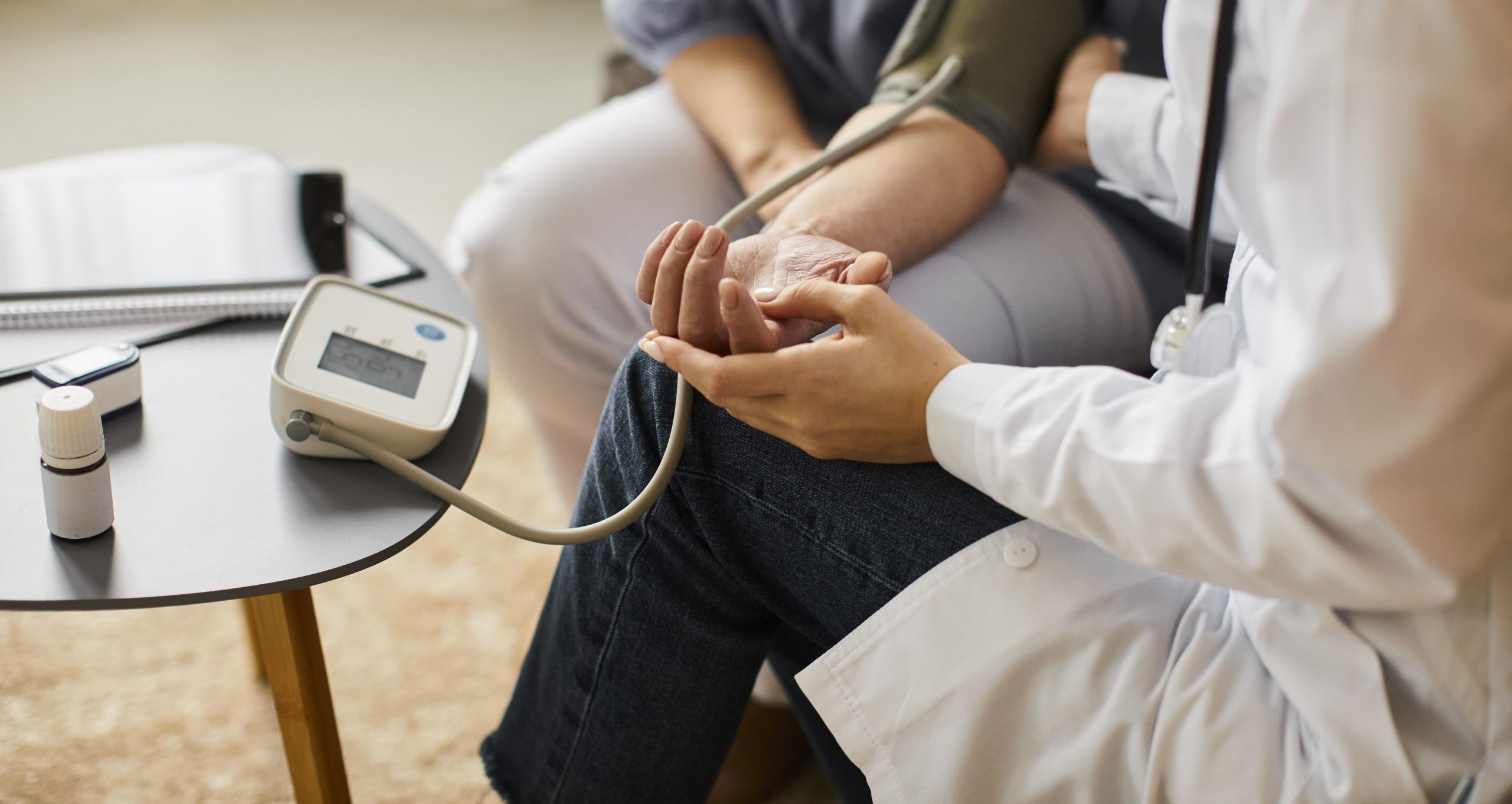Hypertension
Hypertension, or increased blood pressure, is an apparently innocuous but extremely dangerous medical condition that requires quick attention. There are no specific criteria for who is at risk of developing hypertension, as a relatively healthy individual might potentially be at risk as well.
According to WHO, the data gathered over the years points out that, more than a billion adults between the ages of 30 and 80 suffer from hypertension worldwide, with the percentages appearing to be no different in poor and medium-income nations with varying hypertension causes. Elevated blood pressure can also be caused by vitamin deficiencies such as C and D, as well as severe mercury exposure.

Every biological element has recommended optimal levels, and blood pressure is no exception, with the ideal range being 120/80 mm Hg. The heart must go into overdrive mode when the number exceeds the optimal range causing high blood pressure, producing inflammation and damage to the artery walls. That being said, even if you have high blood pressure, you can regulate it and improve your cardiovascular fitness by making smart dietary and lifestyle choices.
- Include whole foods in your diet, such as fruits and vegetables.
Consume a diet high in whole foods, such as fruits and vegetables, which are high in fiber and phytonutrients. Phytonutrient-rich foods include spinach, bell peppers, blueberries, strawberries, mushrooms, and onions, to name a few.
- Keeping a watch on the excess weight
You’re more prone to develop high blood pressure if you carry extra weight around your waist. Regular exercise can help you gain strength, lose weight, and improve the amount of lean muscle mass in your body. Excess fat around the belly button is a health concern that can lead to a variety of problems.
- Focus on your respiration.
Guided breathing has a profound effect on the human body. It has been demonstrated that engaging the diaphragm for 15 minutes or longer lowers blood pressure. Slow, deep breathing can help reduce blood pressure by calming the body and optimizing our well-being.
Risk Factors

There are two categories of risk factors for hypertension.
- Modifiable risk factors
Poor dietary habits – Excessive salt intake, following a diet heavy in saturated and trans fats, and insufficient consumption of fruits and vegetables are all modifiable risk factors, as is lack of physical exercise, cigarette and liquor usage, and being overweight or obese.
- Non-Modifiable risk factors
Heredity of hypertension, age above 65 years with other disorders including diabetes or renal disease are all non-modifiable risk factors.
Hypertension Symptoms
The term “silent killer” is commonly used to describe hypertension. The majority of people are clueless that they have hypertension since it seldom manifests itself in the form of indicators or evident symptoms. As a result, checking blood pressure on a regular basis is crucial. Possible hypertension symptoms include:
- Consistent headaches in the early hours of the morning.
- Unexpected nosebleeds
- Aberrant heartbeats
- Eyesight problems
- Buzzing sensation in the ears etc.
Severe hypertension can cause:
- Drowsiness
- Nausea
- Disorientation
- Anxiety
- Chest tightness
- Muscular tremors etc.
Following a diagnosis of high blood pressure, the doctor might recommend further tests to confirm the diagnosis and screen for hypertension-related variables before moving on to hypertension treatment. The tests can include:
- Laboratory tests
Blood and Urine tests including Cholesterol.
- Ambulatory Blood Pressure Monitoring
A 24-hour medical monitoring test in which your blood pressure is measured at regular intervals throughout the course of a 24-hour cycle in order to get an accurate picture assessment of how your blood pressure varies throughout the day and night.
- Echo Cardiogram
Echocardiography is a procedure that uses sound waves to generate images of the heart. It is suggested to check for further indicators of heart disease based on your symptoms and test findings.
- Electro Cardiogram
The electrical activity of your heart is measured in this swift and painless examination.
What needs to be done?

High blood pressure may very well be controlled and managed by altering your lifestyle. Your internal medicine doctor may advise you to adopt the following lifestyle changes:
- Following a low-salt, heart-healthy diet
- Regular exercise
- Sustaining a desirable weight or, if overweight, reducing It
- Keeping your alcohol consumption to a minimum
Many persistent issues we are confronted with in today’s world, such as high blood pressure, may be considerably addressed by adopting a healthier lifestyle. This might imply consuming more potassium-rich foods for one person. Another person’s goal can be to reduce weight and live a more active lifestyle.
At Ayuh Wellness Functional Medicine Center Atlanta, our primary aim is to listen to the person across the table and assist them in making analyses through scientific analysis reports. We support anybody seeking medical attention by giving them time to open up about their symptoms and difficulties, as well as recommending any necessary lifestyle or dietary changes suitable for their condition which we call a patient-centered approach.